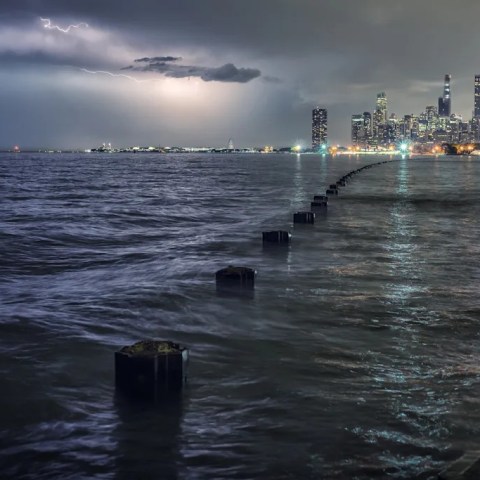A friend of mine once fled her home in the British Virgin Islands during Hurricane Irma in 2017. She and her family had to grab just their passports and run as winds hit 200 mph. The destruction left behind felt like “a bomb going off.”
As hurricane season rolls around each year, many, like my friend, relive that trauma. Now, we see similar fears heightened by storms like Hurricane Melissa in Jamaica, which intensified rapidly due to global warming. This growing trend raises concerns about mental health as reported by psychology researchers Gulnaz Anjum and Mudassar Aziz. They note that “anxiety and grief settle in” after the storm, shaping lives for years to come.
After a disaster like a hurricane, communities usually receive aid quickly to help rebuild. However, the mental scars can last much longer and are often overlooked. A 2022 report from the United Nations’ climate authority confirmed that climate change poses significant risks to mental health, affecting different communities in different ways. Those in farming regions or near coastlines face heightened risks due to their geographic and economic vulnerabilities.
Interestingly, the toll of climate trauma goes beyond the affected areas. Researchers, Jonathan S. Comer and Anthony Steven Dick from Florida International University, have found that children exposed to media coverage of disasters, like Hurricane Irma, showed increased post-traumatic stress symptoms even if they lived far away. This challenges the old belief that only those nearest to a disaster are impacted. They advise limiting exposure to distressing news, as it rarely adds value.
Young people are particularly vulnerable to climate-related trauma. Education researchers from the University of Regina emphasize a need for narratives focusing on solutions rather than despair. Teaching about community-led environmental initiatives can promote hope and resilience. In 2023, research from Jyoti Mishra at UC San Diego discovered that survivors from the 2018 wildfire in Paradise, California, had changes in brain function, dealing with distractions more effortfully. Trauma can alter how we think and react.
According to the World Health Organization, over a billion people worldwide already struggle with mental health issues, and climate change will likely worsen this situation. Experts stress the importance of integrating mental health support into disaster response plans. Resilient mental health plays a crucial role in recovery, helping individuals cope with adversities.
As Mishra points out, “Resilient mental health is what allows us to recover.” How we respond to climate disasters can shape our lives moving forward. Building resilience can empower communities, enabling them to face future challenges together.
More focus on mental health is essential. Discussions on climate issues must also address psychological support strategies. Providing support can help transform fear into a collective sense of agency, promoting a hopeful path for future generations.
For more insights on how climate change impacts mental health, check out this article from the World Health Organization.
Source link
Climate anxiety,climate resilience,climate trauma,hurricanes,mental health





















